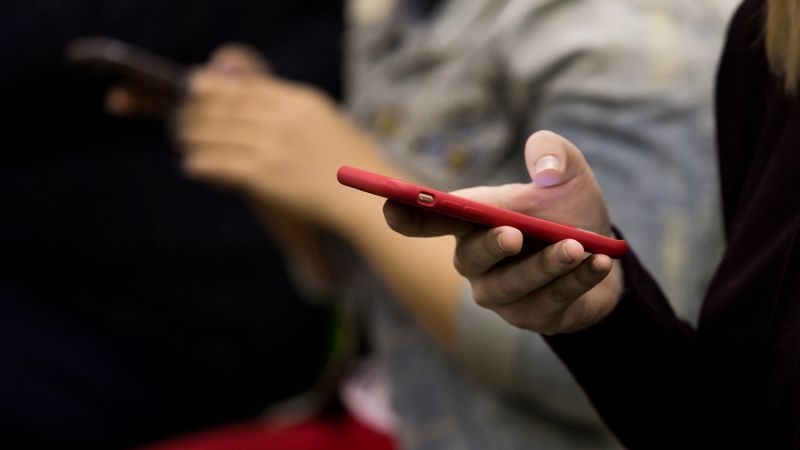

Washington
CNN Business
—
GIFs — those short, animated images that were a staple of internet memes and culture in the 1990s and 2000s — may be going out of fashion now as social media users have largely moved on to emojis and video.
But a long-running legal battle over who can control access to them, culminating this week in a rare defeat for Meta (META), the parent of Facebook, could have major ramifications for Big Tech regulation. While the stakes of the case itself were relatively small, policy experts say the outcome is certain to embolden antitrust regulators around the globe and could chip away at the image of Big Tech as an invincible juggernaut.
On Tuesday, UK regulators forced Meta to unwind its 2020 purchase of Giphy, one of the largest searchable internet libraries of GIFs.
Meta had fought the breakup effort. But after an appeals tribunal this past summer largely upheld the government’s decision, Meta said this week it would sell Giphy in response to the final order from the UK requiring a spin-off.
The concession marks a key moment in the global tug-of-war between governments and tech giants. It’s the first time any government — and one outside the United States at that — has successfully forced Meta to accept a breakup, albeit a partial one, since regulators worldwide began scrutinizing its economic dominance.
“The Citadel may have been breached,” said Joel Mitnick, an antitrust attorney at the law firm Cadwalader, Wickersham & Taft.
Meta, more than any other tech company, has drawn the attention of regulators for its acquisitions, which to critics have often looked like attempts to kill off potential competitive threats before they can flourish. In particular, they’ve pointed to its deal for Instagram in 2012 and WhatsApp in 2014, both of which were far pricier than the $400 million it reportedly paid for Giphy.
Meta is currently defending against a US government antitrust suit seeking to force the company to spin off Instagram and WhatsApp, and another that would block a more recent proposed acquisition of a virtual reality startup known as Within Unlimited.
The company said this week that it will continue to explore acquisitions despite the UK ruling. In issuing its decision, the UK’s competition regulator said Meta’s Giphy acquisition risked eliminating a competitor in digital advertising and cutting off third-party access to Giphy’s GIFs.
GIFs aren’t a core part of Meta’s business; the company has sought to reposition itself instead as a leader in virtual reality technology. Even when Meta’s deal was first announced, it was widely regarded as a headscratcher and not an obvious threat to competition, according to Adam Kovacevich, CEO of the Chamber of Progress, an industry advocacy group funded partly by Meta.
“Almost no one thought Meta was securing some kind of major coup with this deal,” Kovacevich tweeted, arguing that the case primarily served as a political exercise for UK regulators to demonstrate their post-Brexit relevance.
Paul Gallant, an industry analyst at Cowen Inc., said that that only emphasizes how closely regulators are watching tech mergers now, and underscores how much of a wake-up call the UK ruling is.
“Successfully blocking this deal will catch the eyes of the biggest tech companies in the world,” Gallant said. “The biggest tech companies have grown significantly through mergers and acquisitions, so this decision has the potential to complicate that strategy.”
In many ways, the UK’s success in rolling back the Giphy merger reflects the cooperation and consensus that has emerged among antitrust agencies around the world, said William Kovacic, former chairman of the Federal Trade Commission and a law professor at George Washington University.
The ruling will give non-UK regulators greater confidence that their own attempts to block tech industry consolidation may be achievable or, at the very least, not be viewed as radical, he added.
“It gives you the ability to resist the argument that you are a rogue agency or a rogue jurisdiction,” Kovacic said. “It is more comforting to travel in a group than alone.”
Emboldened regulators could seek to block more deals, or perhaps bring more cases alleging anticompetitive behavior. But just because the Giphy case could inspire more enforcement, that doesn’t necessarily mean they’ll be successful. That’s because, in major markets such as the United States, antitrust cases first must be proven in court before any penalties can be imposed. And US courts don’t typically take foreign antitrust rulings into account; their job is to interpret US law.
In that respect, said Mitnick, US antitrust officials face a tougher challenge than their counterparts in Europe and in other places where regulators face lower procedural hurdles.
A successful US breakup prosecution, Mitnick said, “remains a very high wall to scale.”
